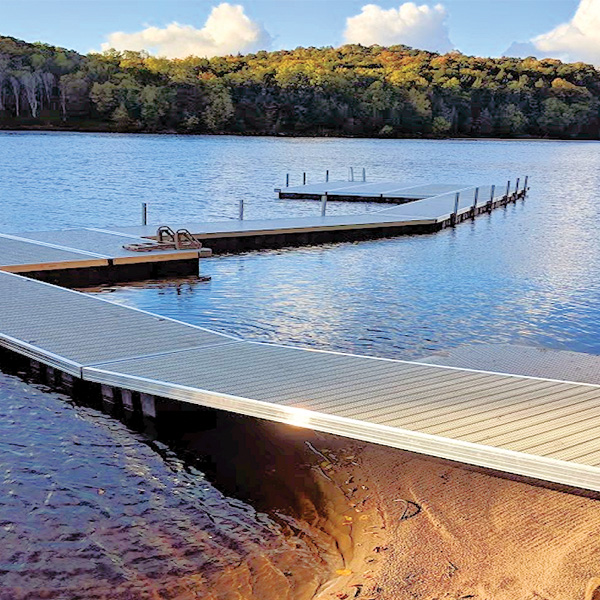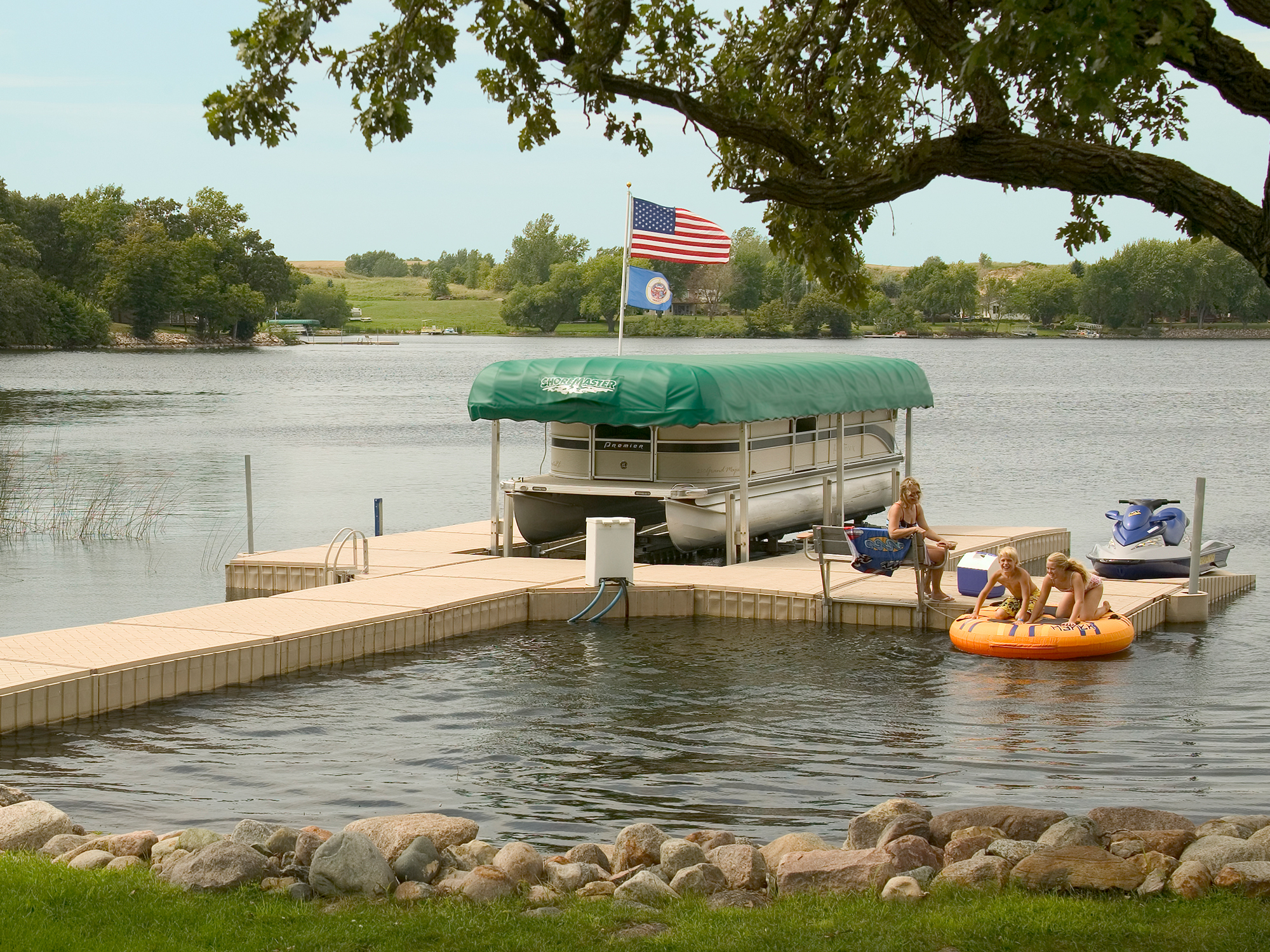Floating Docks: The Smart Choice for Modern Beachfront Living and Entertainment
Floating Docks: The Smart Choice for Modern Beachfront Living and Entertainment
Blog Article
Floating Docks: The Suitable Option for Versatile Water Accessibility
Floating docks existing an engaging solution for a selection of water gain access to requires, supplying flexibility that transcends standard mooring alternatives. Their ability to adjust to changing water degrees while making sure stability and safety makes them especially advantageous for both business and recreational applications. Additionally, the modular nature of floating docks assists in modification, satisfying details needs. The subtleties of setup and maintenance, alongside the range of applications, necessitate a closer exam to totally value their possible benefits and implications for river accessibility methods.
Advantages of Floating Docks
Floating docks deal many advantages that boost water access for various applications. Their capacity to drop and rise with transforming water degrees makes them specifically beneficial in atmospheres with varying tides or seasonal variants. This adaptability guarantees that vessels can conveniently moor without issue for the water's depth, supplying a dependable system for recreational, commercial, and industrial usages.
Furthermore, floating docks are typically created from durable products that resist deterioration, making them appropriate for long-lasting use in marine atmospheres. Their installment is typically much less invasive than conventional fixed docks, lowering the ecological effect and helping with quicker release (floating dock builder). This flexibility enables much easier moving or reconfiguration according to user demands or environmental changes
Safety is one more key benefit; floating docks can supply stable gain access to for individuals boarding or disembarking from watercrafts and minimize the threat of crashes connected with unsteady surface areas. They can be developed to fit a range of accessories, such as fenders and cleats, improving capability. Generally, floating docks stand for a reliable option for boosting water access throughout varied markets while promoting security and environmental sustainability.

Sorts Of Floating Docks
Numerous sorts of floating docks accommodate different requirements and environments, each made with certain functions to optimize functionality. One of the most common kinds consist of modular docks, which include interlacing areas that enable for easy customization and development. These docks are ideal for leisure usage, as they can be tailored to fit different watercraft dimensions and water conditions.
An additional preferred choice is the fixed floating dock, which continues to be anchored in area however drifts with changing water degrees. floating dock builder. This type is specifically matched for locations with minimal tidal changes, offering steady access for fishing or swimming. Additionally, there are drive-on docks, which feature a sloped design that allows watercrafts to conveniently drive on and off, making them suitable for personal watercraft and smaller vessels
For business applications, sturdy floating docks are available, built from strengthened materials to stand up to considerable loads and severe aquatic environments. Environmentally friendly floating docks make use of lasting materials and designs to minimize ecological influence, frequently integrating attributes like plant life to sustain local wild animals. Understanding the numerous kinds of floating docks makes sure that individuals can choose one of the most suitable solution for their certain requirements.
Installation Process Introduction
A successful installation of floating docks needs mindful preparation and attention to detail to guarantee optimal performance and security. The first action includes examining the website problems, consisting of water deepness, present, and potential obstacles. This assessment educates the selection of the suitable dock materials and style customized to the details atmosphere.
Next, getting necessary permits is important, as many jurisdictions click to read more have laws regarding building on water bodies. As soon as consents are protected, the setup can continue. Begin by preparing the foundation, which may involve anchoring systems or pilings customized to the dock kind and regional problems.
Adhering to the structure setup, construct the dock sections according to manufacturer specifications. Make certain that all parts are securely secured and lined up to stand up to environmental tensions. Setting the dock in the assigned location, ensuring it is level and steady.

Upkeep Tips and Ideal Practices
After the installment procedure is full, continuous upkeep plays a vital role in making certain the long life and capability of floating docks. Regular assessments need to be carried out to determine any kind of signs of wear, damage, or deterioration - floating docks. Look for any loosened fittings, fractures, or splitting up in the dock areas, as these can jeopardize structural integrity
Cleaning the dock is essential to eliminate debris, algae, and other accumulation that can influence its appearance and safety and security. Utilize a mild pressure clean periodically to maintain tidiness without creating damage to the surface. Furthermore, using a protective sealant every few years can aid boost longevity and resist environmental wear.
Focus on the mooring lines and supports, ensuring they are secure and totally free from deterioration. Change any degraded elements promptly to prevent risks. Seasonal changes might additionally be essential; throughout extreme climate condition, strengthening the dock or rearranging can stop damages.
Applications for Floating Docks
Floating docks offer a wide variety of applications, dealing with both industrial and leisure demands. In recreational settings, they provide smooth access to waterways for tasks such as boating, fishing, and swimming. Their flexible nature allows for installment in varying water degrees, making certain risk-free and steady accessibility no matter tidal variations.
Commercially, floating docks are essential for marinas and beachfront organizations. They help with the docking of vessels, allowing effective filling and discharging of goods. Their modular style permits for very easy expansion or reconfiguration to suit changing service demands, making them excellent for boat leasings, excursion procedures, or fishing charters.
In addition, floating docks are utilized in ecological applications such as marine study and environment reconstruction. They can act as platforms for scientific studies, monitoring site web water top quality, or performing wild animals surveys without troubling sensitive environments.
In industrial contexts, floating docks are utilized in building and construction projects, supplying access to hard-to-reach areas for equipment and employees. Their convenience, durability, and minimal influence on the setting make them an ideal selection for a broad array of applications, boosting both performance and availability in Discover More Here numerous water-based settings.
Final Thought
In verdict, floating docks stand for an ideal solution for varied water access needs, owing to their adaptability, durability, and modular design. These structures assist in risk-free mooring for numerous applications while minimizing ecological influence throughout installment. The lowered upkeep demands better boost their usefulness. Because of this, floating docks act as an important asset for entertainment, commercial, and environmental jobs, making sure trusted access to waterways and advertising sustainable techniques in aquatic atmospheres.
Floating docks existing an engaging remedy for a range of water access needs, providing convenience that transcends traditional mooring choices.Floating docks offer numerous advantages that boost water accessibility for different applications. In general, floating docks represent an efficient remedy for boosting water gain access to across diverse sectors while promoting safety and security and environmental sustainability.
One more prominent choice is the stationary floating dock, which remains anchored in area but drifts with transforming water levels.In verdict, floating docks represent an ideal option for varied water accessibility needs, owing to their flexibility, toughness, and modular layout.
Report this page